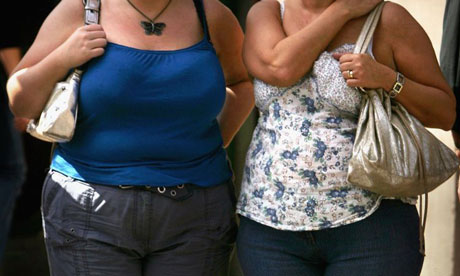
Many NHS trusts have seen spending on obesity increase more than seven-fold in just three years, data released today suggests.
High demand for stomach surgery for obese patients as well as the cost of specialist equipment – such as larger examination couches – means the costs to primary care trusts (PCTs) have shot up.
The new statistics come after official figures published in February revealed that weight-loss stomach surgery for obesity has risen 40% in a year.
The data, from the NHS information centre, showed there were 2,724 hospital admissions in 2007-08 for bariatric surgery, which includes stomach stapling and gastric bypasses.
Overall, hospital admissions for obesity also increased, reaching 5,018 in 2007-08, a 30% rise on 2006-07 and almost a seven-fold increase on 1996-97.
Today's data, obtained from 60 PCTs by GP newspaper under the Freedom of Information Act, showed 48% were now treating more patients for obesity than three years ago.
Around one in six (16%) PCTs had increased their obesity budget seven-fold in the last three years and the same number (16%) had purchased primary care equipment specially designed for obese patients.
The data also showed that 25% of PCTs have refused requests for bariatric surgery. However, many said they were committed to tackling obesity as a number one priority.
Among those PCTs with budget increases is Halton and St Helens, whose budget for 2007-08 was £800,000, rising to around £3m in 2009-10.
• Oxfordshire PCT said its budget in 2007-08 was £88,000, rising to £245,000 in 2008-09 and £695,000 in 2009-10
• Hampshire PCT's budget for obesity went from £215,000 in 2008-09 to £517,000 in 2009-10
• Somerset's budget for 2007-08 was £713,063, rising to £1.08m in 2008-09 and £1.28m in 2009-10
• Bassetlaw PCT's budget went from £25,000 in 2007-08 and 2008-09, rising to £313,000 in 2009-10
• In Norfolk, tackling obesity in 2007-08 cost £150,000 but the budget for 2009-10 is £430,000
Dr David Haslam, a GP in Hertfordshire and clinical director of the National Obesity Forum, said PCTs were turning down requests for surgery not because patients were failing to meet criteria laid down by the National Institute for health and Clinical Excellence (Nice), but to cut costs.
He said: "PCTs are delighted to find any excuse to turn down bariatric surgery, despite the fact that it is among the most clinically effective, and cost effective procedures in any field of medicine."
Tam Fry, chairman of the Child Growth Foundation and member of the National Obesity Forum, said: "Obesity is now so great that this level of PCT spending is necessary just to make inroads into the problem.
"But this kind of spending cannot be sustained and could go on to cripple the NHS."
The NHS information centre data published in February also revealed that the number of drugs to treat obesity dispensed on the NHS increased to 1.23 million items in 2007 – a rise of 16% on 2006.
In 2007, 24% of all adults in England were classed as obese – with a body mass index (BMI) of 30 or over. In 1993, just 16% of women and 13% of men were obese.
Figures for 2007 also showed that 17% of boys and 16% of girls aged two to 15 were obese, increasing from 11% and 12% respectively in 1995.
A spokesman for the Department of Health said: "We know that obesity is one of the biggest health challenges we face and it places a financial burden on the NHS. That is why we are committed to taking action to prevent more serious illness and much bigger costs to the health service and the country in years to come.
"We are spending £372m to implement the Healthy Weight, Healthy Lives strategy and as part of this we are investing £75m over the next three years in Change4Life that aims to encourage people to be more active and eat better."
Pav Kalsi, a care adviser at Diabetes UK, said: "When it comes to tackling the obesity crisis, money would be better spent by focusing in the key areas of prevention and awareness.
"The NHS and the government should be encouraging people to make simple lifestyles changes, such as eating a healthy diet and being physically active in order to both maintain a healthy weight and help reduce their risk of developing type 2 diabetes. Procedures such as bariatric surgery would only be recommended as a last resort option when lifestyle and behavioural changes have failed.
"Eighty per cent of people diagnosed with type 2 diabetes are overweight or obese at the time of diagnosis."

